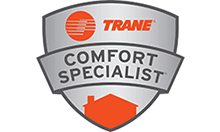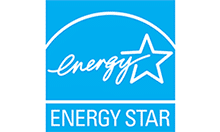When it comes to choosing a water heater for your home, it’s crucial to understand the various options available. Whether you’re upgrading an old unit or choosing a water heater for a new home, selecting the right system can save you money on energy bills and ensure you have a steady supply of hot water. At The Dukes of Air, we specialize in helping homeowners in Mesa, Arizona, find the perfect water heater for their needs. Here’s a breakdown of the most common types of water heaters and some tips on how to choose the best one for your home.
1. Storage Tank Water Heaters
The most common type of water heater, storage tank systems, store a large amount of hot water in a tank for use throughout the day. They are available in electric, gas, and propane options.
Interesting Fact: Did you know that about 90% of U.S. homes use a storage tank water heater? While it’s an old standby, advances in energy efficiency have made newer models much better at conserving energy than older ones.
- Pros: Reliable, affordable, and widely available.
- Cons: They take up more space, and once the stored water is depleted, you must wait for the tank to refill and reheat.
- Best for: Medium to large households that need hot water throughout the day.
2. Tankless Water Heaters
Tankless water heaters, also known as on-demand water heaters, provide hot water only when you need it. This type heats water as it flows through the unit, meaning you won’t run out of hot water as long as the system is functioning correctly.
Interesting Fact: A tankless water heater can be 24%-34% more energy efficient than traditional storage tank systems, especially in homes that use 41 gallons or less of hot water daily.
- Pros: Unlimited hot water supply, takes up less space, and reduces energy consumption.
- Cons: Higher upfront cost and may not be ideal for homes with high simultaneous hot water demand unless you install multiple units.
- Best for: Smaller homes or households with lower hot water needs, as well as homeowners looking to maximize energy savings.
3. Heat Pump Water Heaters (Hybrid)
Also known as hybrid water heaters, heat pumps use electricity to move heat from the air or ground to heat the water, making them highly energy-efficient. These units come with a storage tank but rely on air or ground source heat to heat the water, rather than generating heat directly.
Interesting Fact: Heat pump water heaters can save homeowners up to $300 annually on energy costs due to their energy efficiency.
- Pros: Extremely energy-efficient, low operating costs.
- Cons: More expensive upfront and requires more space than other systems.
- Best for: Homeowners looking to reduce their energy footprint and cut down on utility bills, especially in warmer climates like Arizona.
4. Solar Water Heaters
Solar water heaters use solar panels to collect and convert sunlight into heat. While they can be more expensive to install, the energy savings and eco-friendliness make them an attractive option.
Interesting Fact: A solar water heater can reduce water heating costs by as much as 50%-80%, depending on the system size and location.
- Pros: Extremely energy-efficient, eco-friendly, and significantly reduces utility bills.
- Cons: High upfront costs and dependent on sunlight, meaning it might require a backup system during cloudy days.
- Best for: Environmentally-conscious homeowners with good solar exposure and those looking for long-term energy savings.
5. Condensing Water Heaters
Condensing water heaters are a great option for homes that use natural gas as their primary energy source. They capture the unused gas fumes typically wasted in conventional systems and use them to heat the water.
Interesting Fact: This system’s unique design can save up to 15%-20% more energy than a traditional gas water heater.
- Pros: Efficient for homes with gas lines, reduces energy waste, eco-friendly.
- Cons: Limited to homes using natural gas, and the installation cost can be high.
- Best for: Larger homes that need a high-capacity gas water heater.
How to Choose the Right Water Heater for Your Home
Choosing the right water heater depends on various factors, including the size of your household, your energy source (gas, electric, or solar), and your budget. Here are a few considerations:
- Household Size: For large families, a tankless or high-capacity storage tank water heater may be necessary to meet higher demand. Smaller households may benefit from a hybrid or tankless system for energy efficiency.
- Energy Efficiency: If energy savings are your primary concern, consider a hybrid or tankless system. Both options are designed to conserve energy while meeting your household’s hot water needs.
- Upfront Costs vs. Long-Term Savings: While systems like solar water heaters or heat pumps come with higher initial costs, they provide long-term energy savings that can offset the expense over time. In contrast, a traditional storage tank heater is more affordable upfront but can result in higher energy bills.
- Available Space: Tankless water heaters are excellent for homes with limited space since they take up less room compared to bulky storage tank units.
Need Help Deciding? Call The Dukes of Air!
Still not sure which water heater is best for your Mesa, Arizona home? Contact The Dukes of Air today! Our experts can help you weigh the pros and cons of each option based on your household needs and budget, ensuring you get the best system for your home.











